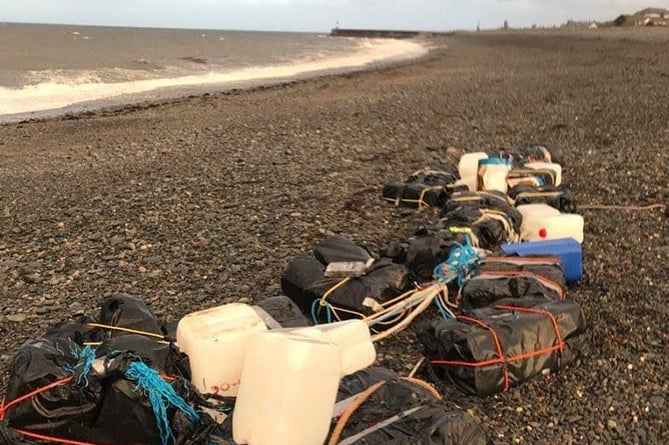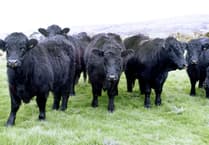AN investigation is still ongoing after around £42 million worth of cocaine washed ashore along Cardigan Bay one year ago.
The first batch of Class A drugs were found by a dog walker on Tanybwlch beach on Saturday, 1 October 2022, when around 30 packages emblazoned with Dior branding - were found tied to a string of makeshift buoys.
The discovery was reported to the police, which triggered a major investigation launched by the National Crime Agency – the UK’s FBI – Dyfed-Powys Police, neighbouring forces and the National Police Air Service.
In the hours and days that followed, more packages washed up on beaches along Cardigan Bay, including near Borth and Tywyn.
The NCA confirmed at the time that the drugs recovered weighed 1,200kg and are worth about £42 million.
Speaking at the time, they said: “This amount would have a wholesale value of approximately £42 million.
“Our investigation continues and we reiterate to the public that if they find anything suspicious on the beaches, please contact police.”
One year on from the first discovery on Tanybwlch beach, the Cambrian News asked the NCA whether any arrests had been made and whether the investigation was still active.
An NCA spokesperson said: “Our investigation is ongoing, but I have no update at the moment.”
The Police and Crime Commissioner for the Dyfed-Powys region, Dafydd Llywelyn, told a public meeting at Aberystwyth University shortly after the discoveries that people have nothing to fear.
“I was shocked to hear that we’d found approximately a ton of suspected cocaine on a beach not far from here,” he said.
“But it isn’t unique, is the point.
At the same meeting, the Dyfed-Powys Police Chief Constable Dr Richard Lewis – who is also the National Police Chiefs’ Council lead for drug crime – added: “We’re an island nation and we will always have ports or areas of coastline which are more exposed to all sorts of problems, not just drug importation.
“But I would like the public to know there is nothing specific about Aberystwyth being a vulnerability. It isn’t. We’re on the west coast of the UK and that presents some problems in terms of where importations come from.”




